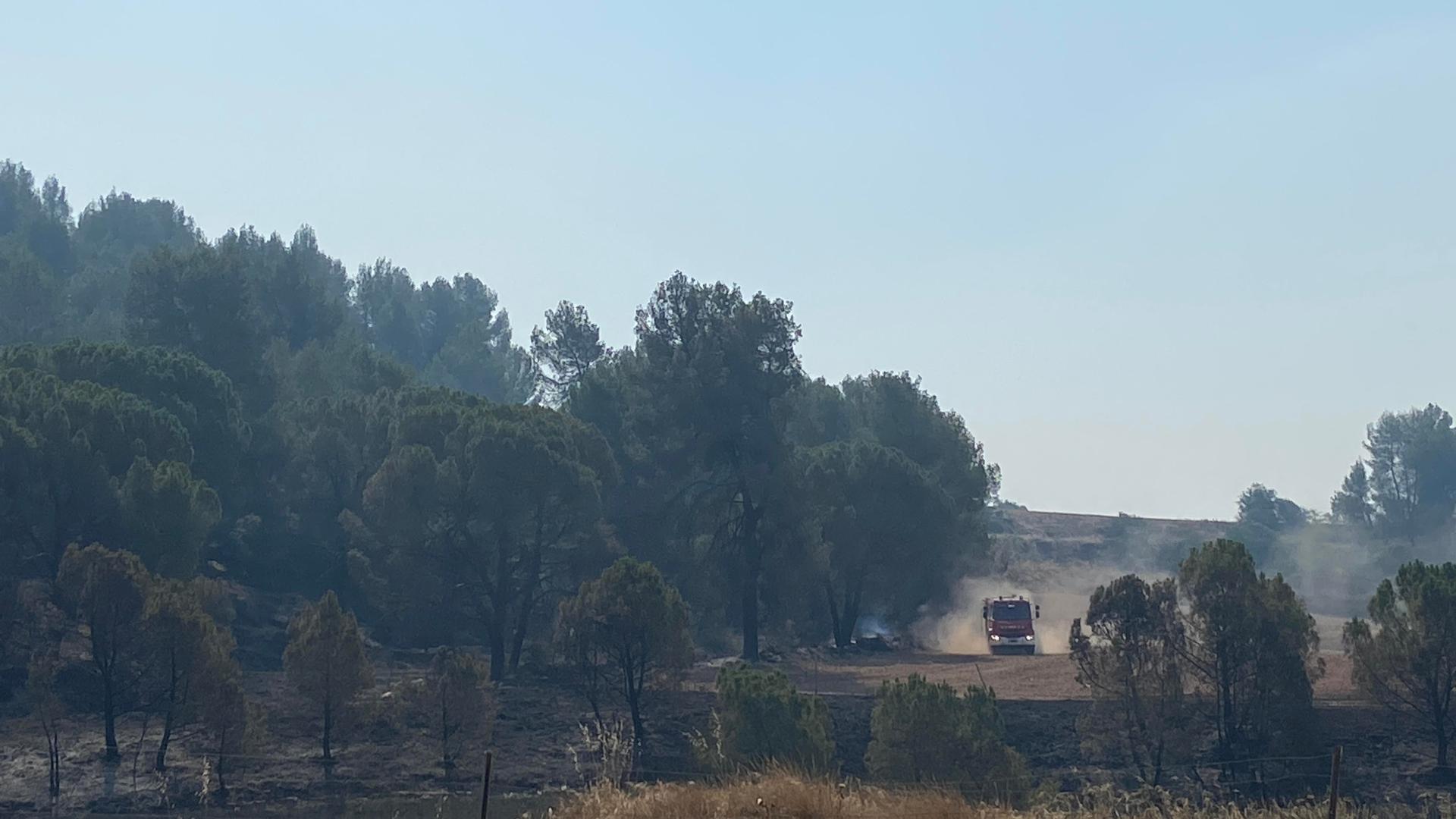Europe’s spate of fierce wildfires abated somewhat Thursday amid cooler temperatures, with French firefighters starting to get the upper hand over two major blazes, Spain taming a fire that killed two people and no new outbreaks reported in Portugal.
But a fire in Slovenia on the border with Italy kicked up strongly Thursday, forcing the evacuation of three villages.
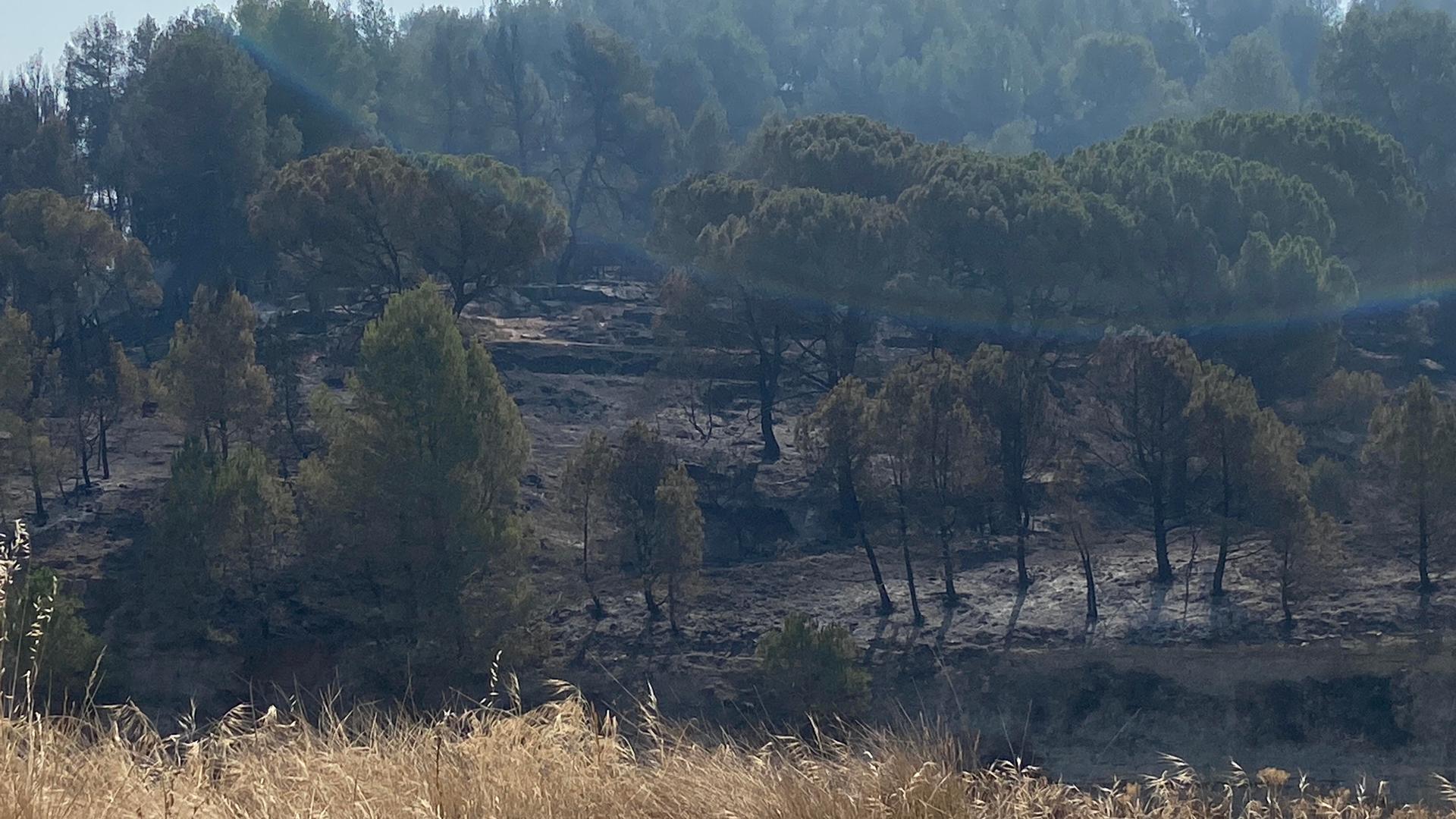
Spanish firefighters were tackling nine blazes, with two said to be especially dangerous in the northwestern Galicia region. Some of the 11,000 people evacuated because of the fires in Spain began returning home, and a major highway in the northwestern Zamora province reopened after two days.
Temperatures above 104 degrees and a drought have worsened Spain’s wildfires this year. Thursday’s highest temperature in Spain was forecast to be 90 degrees.
The largest wildfire in northeast Spain, as of mid-July, consumed more than 4,000 acres in a single night. In Sant Fruitós de Bages about an hour outside of Barcelona, hundreds of people were evacuated from their homes.
Francisco Hernandez was in a field in front of a charred hillside forest and saw the blaze firsthand.
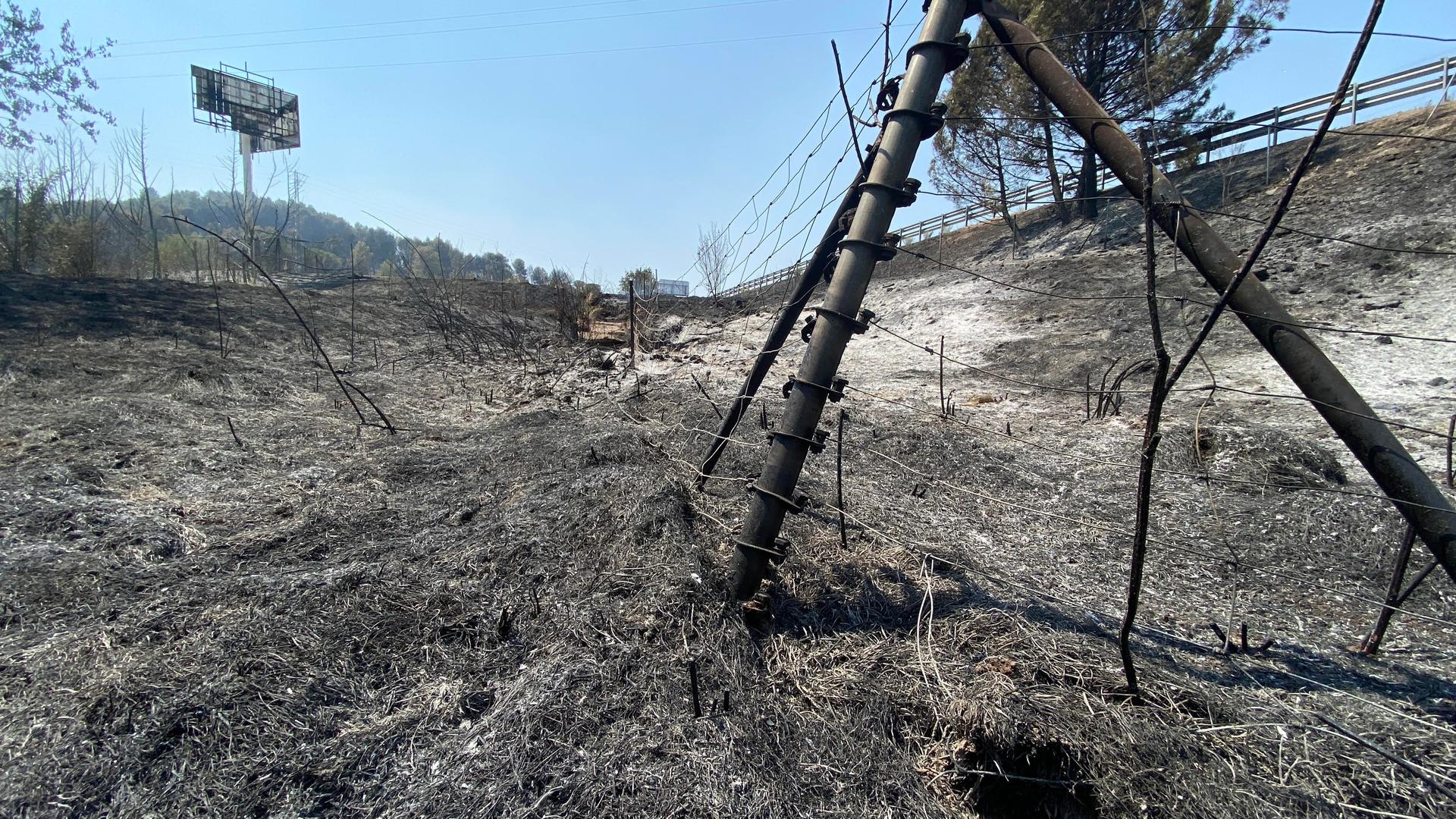
“I came down around 4:30 in the afternoon, and that entire hillside was a ball of fire,” he said. “In 15 or 20 minutes, the fire consumed everything.”
Hernandez said four or five helicopters were dumping water over the land, but it didn’t have any effect. He was terrified that the fire would cross a farmer’s field and reach his home.
“But luckily, some farmers came and plowed [to get rid of low grass and brush] in front of our street,” he said. “Otherwise, that fire could have reached my home within 10 minutes.”
Waiting to go back home
Hernandez got lucky. About 1,000 other nearby residents were forced to flee. Many slept in the local civic center on Red Cross cots.
The next morning, people were milling about, waiting to find out if it was safe to go back home. Like Toni, who asked not to use his full name, who sat at the civic center with his dog, Boss.
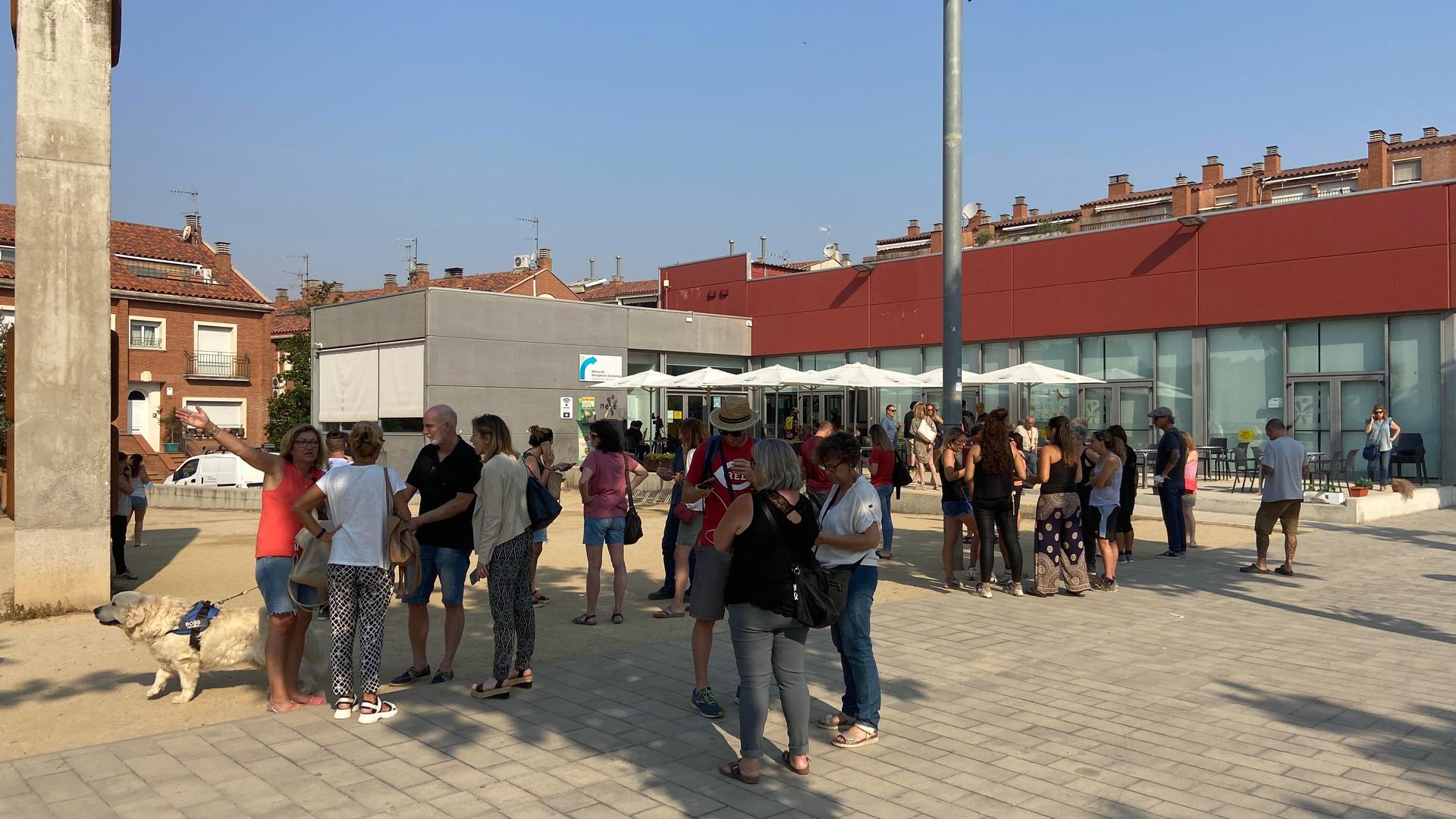
“We have been evacuated from a housing development called Les Brocardes,” he said. “It’s been a day, and we don’t know whether our houses have been damaged.”
Toni said that he and his wife stayed in their home until the last minute, trying to wet the trees down with the garden hose as the flames approached. Looking back, he said, it was absurd.
“When it became hard to breathe, and we saw that all the neighbors’ cars were gone, we decided we had to leave, too.”
Twin sisters, Mireia Vila and Rose Vila were also at the civic center, waiting for news too, about their family home.
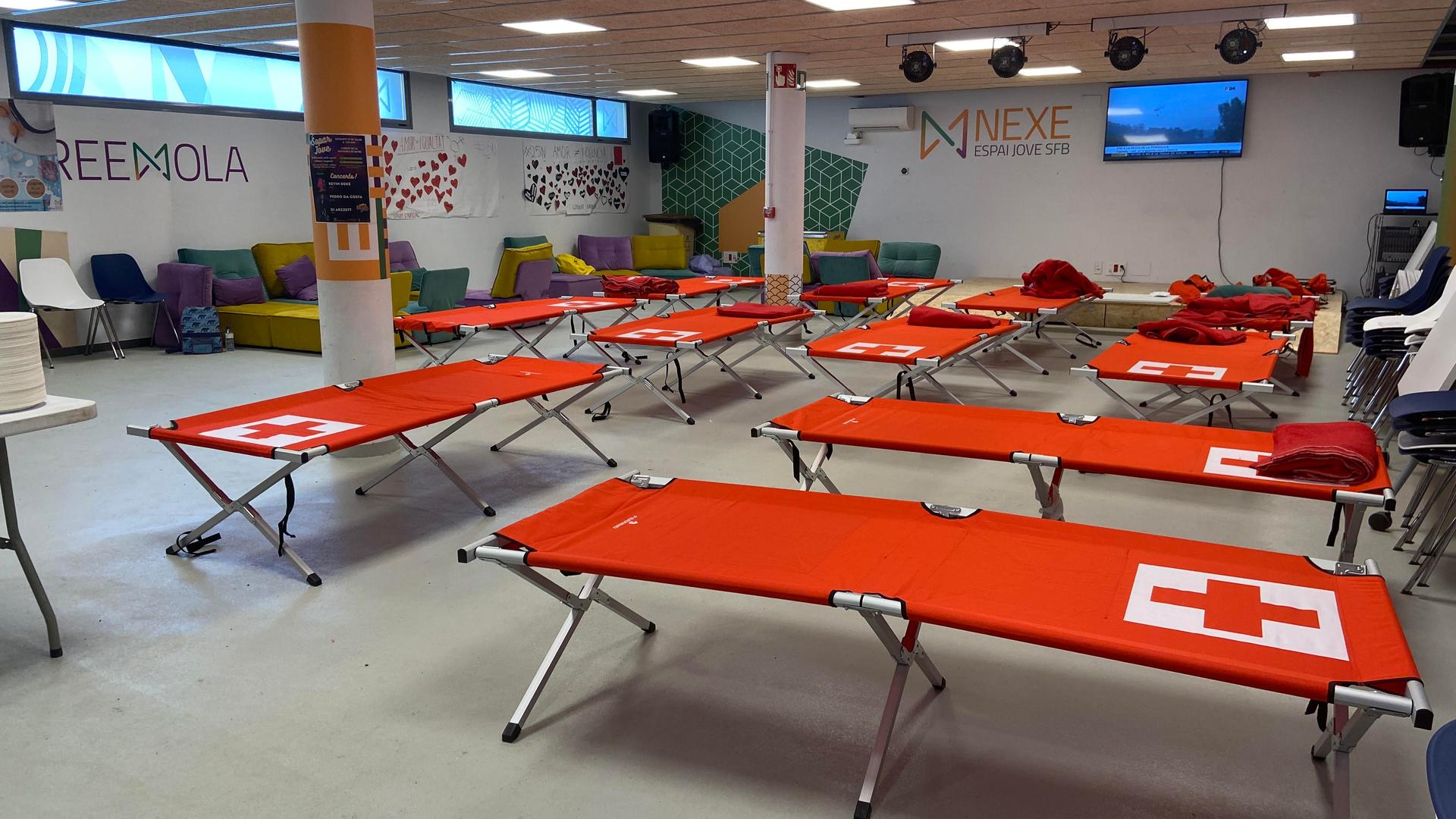
“It is very sad because we have a lot of memories with the swimming pool, all the trees that we have planted. Every single space you see,” Mireia Vila said. “You remember your childhood.”
“People from [Les] Brocardes are like a family,” Rose Vila said. “Everybody knows everybody. It’s like a crisis in a family. It is not the houses.”
Nor is it the stuff in the houses that really matters, she said.
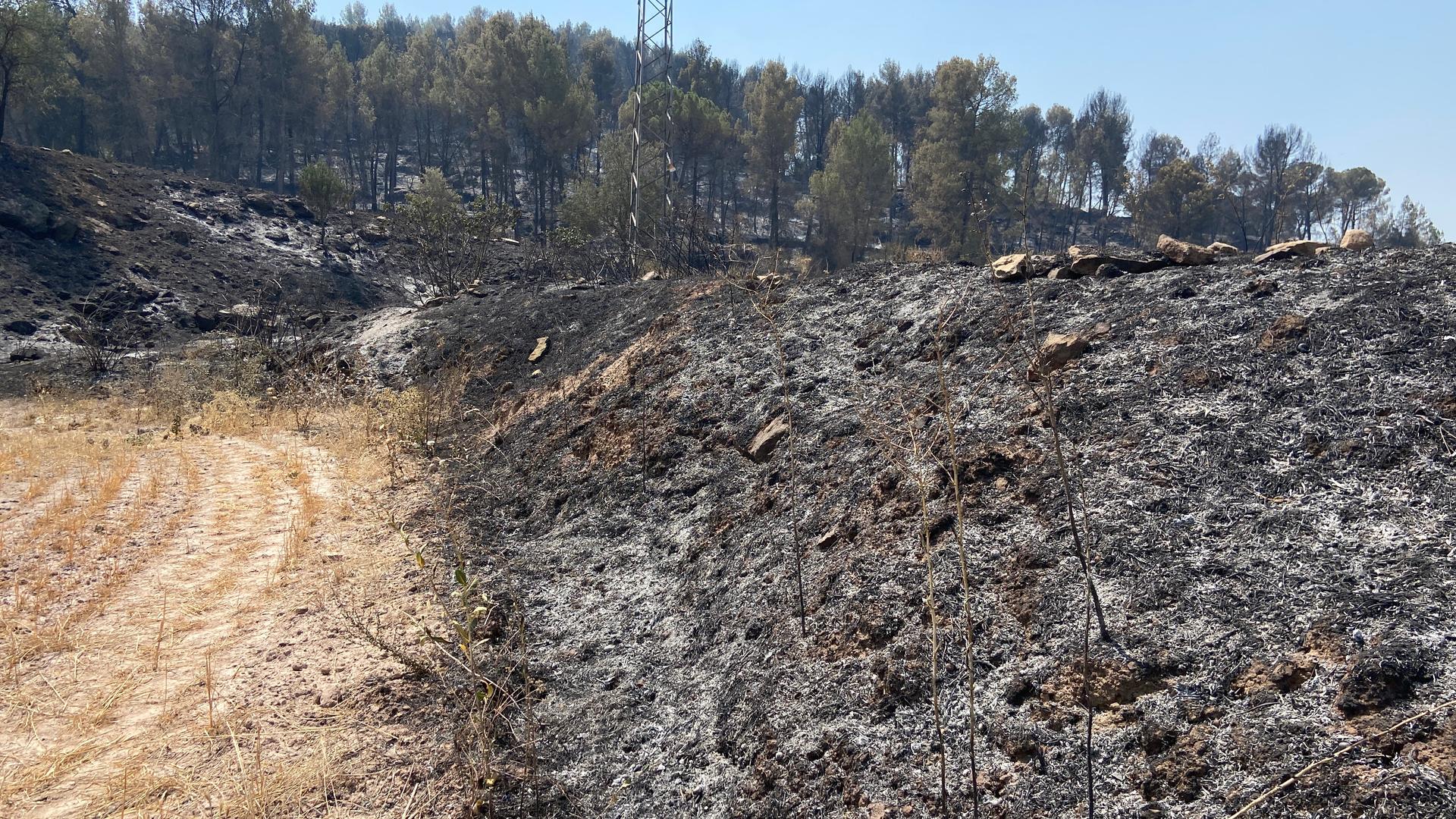
The Associated Press contributed to this report.
The story you just read is accessible and free to all because thousands of listeners and readers contribute to our nonprofit newsroom. We go deep to bring you the human-centered international reporting that you know you can trust. To do this work and to do it well, we rely on the support of our listeners. If you appreciated our coverage this year, if there was a story that made you pause or a song that moved you, would you consider making a gift to sustain our work through 2024 and beyond?
